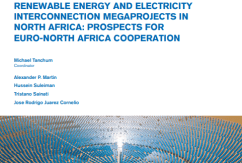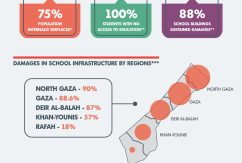Euromed Aviation II
Project Duration
2012 - 2014
Budget
€4 million (Main contract €2 million; Project for the set-up and running of the Mediterranean Aviation Safety Cell (MASC) €2 million)
Status
Completed
Brief Description
Promotes the emergence of a Euro-Mediterranean Common Aviation Area, and supports an open and secure aviation market in the Mediterranean Partner Countries with a view to further integrating it into the EU
Algeria, Egypt, Israel, Jordan, Lebanon, Libya, Morocco, occupied Palestinian territory, Syria, Tunisia
Actions in brief
Main contract
- Facilitates the convergence of partner countries’ air traffic management systems with the Single European Sky legislation;
- Organises 4 regional workshops and possible expert missions in the area of licensing with a view of applying equivalent financing requirements and similar conditions related to the granting / withdrawal of operating licences in the partner countries;
- Organises technical assistance by experts on competition issues and passenger protection and ensures the creation of a service/unit, within all the beneficiaries countries devoted to passengers rights;
- Promotes the opening-up of the ground-handling sector and the implementation of an airport charges scheme;
- Assists Mediterranean partners in aligning their ramp inspection regime with the common European procedures and in the establishment of an independent safety regulator and harmonisation of certification rules applicable to aeronautical products and staff;
- Provides assistance and training in the areas of harmonisation of the regulations and national programmes and passengers and baggage screening;
- Presents and promotes EU regulations on greenhouse gas emission and the ongoing development of a trading mechanism within the EU also applicable to third country flights coming into the EU.
MASC project
- Assists participating partner countries in incorporating EU aviation safety rules in their national legal and regulatory systems and in the follow-up of the results of the fact-finding inspections and in implementing the necessary measure to correct the findings;
- Organises the participation of experts from participating partner countries to EASA organised technical tasks and organises two steering committees of the MASC per year
- Organises, through audits on-site, fact-finding inspections in participating partner countries to assess the level of implementation of safety rules;
- Establishes and manages, in cooperation with the partner country, a system to collect, exchange and analyse safety data
Thematics
Environment & Climate change
Newsletter
Subscribe to receive our latest updates
News alerts
Personalise your news alerts subscription
© This project is funded by the European Union, 2024






























